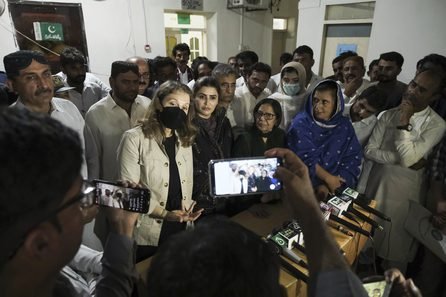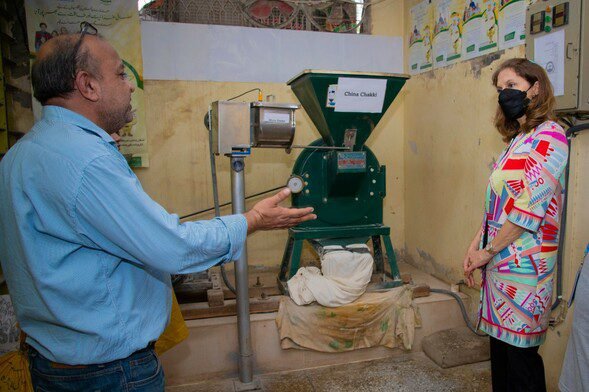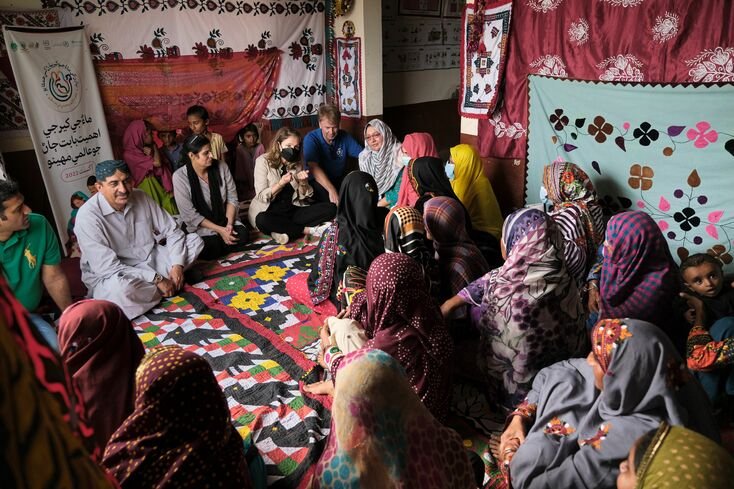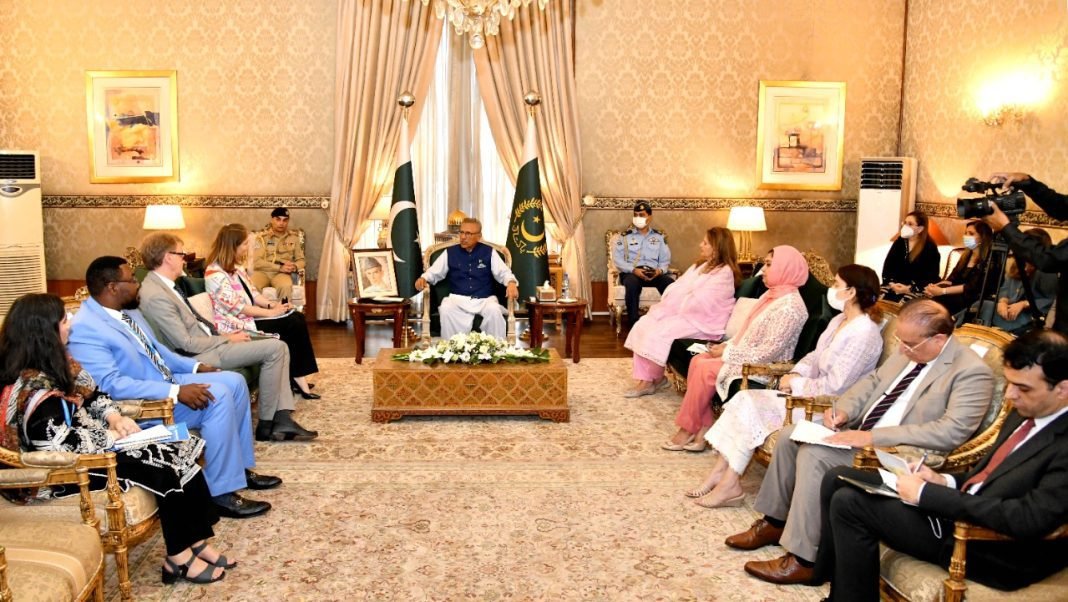Islamabad, 28 August 2022 (TDI): Princess Sarah Zeid of Jordan, the Special Advisor of the World Food Programme (WFP) on Maternal and Child Health and Nutrition, has returned from a week-long visit to Pakistan.
Glimpses from Benazir Nashonuma Facilitation center in Badin, Sindh – HRH @PrincessSarahZR and Fed Minister @ShaziaAttaMarri met 👶🏻 and women. @PrincessSarahZR lauded the work at @bisp_pakistan, said Benazir Nashonuma is working well to ensure the supply of 🍱 to mother and👧🏻 pic.twitter.com/ACIwObomqW
— Benazir Income Support Programme (@bisp_pakistan) August 23, 2022
While there, she witnessed firsthand how WFP is assisting the Government of Pakistan in addressing malnutrition through the Benazir Nashonuma Programme, particularly stunting, which affects 12 million children, or up to two-thirds of all children in Pakistan.
During her visit, Princess Sarah Zeid’s first stop was in Sindh’s district Badin, where she met with the Federal Minister of Poverty Alleviation and Social Safety, Shazia Atta Marri and visited the Benazir Nashonuma Facilitation Centre.
The Princess spoke with lady health workers, midwives, and mothers there, as well as at the Community Health Centre, to discuss the maternity and child health concerns that local communities confront.
Under the Benazir Nahsonuma Programme, a partnership between WFP and the Government of Pakistan provides crucial health and nutrition assistance to approximately 150,000 women and children, with a goal of reaching 1.7 million over the next three years.

Also Read: President of Pakistan meets UN WFP Special Advisor
“I am inspired to see how some of the most vulnerable mothers and children are receiving essential nutrition support combined with conditional cash transfers as part of the Benazir Nashonuma Programme.
It is incredible to see the positive change in Pakistan since my last visit in 2019”, shared the WFP Special Advisor while sharing her experience. In Islamabad, she visited a chakki (small-scale mill) as part of the WFP’s Chakki Programme.
She witnessed the fortification process works and how it enables WFP to prevent malnutrition in up to 70% of Pakistan’s population while also giving jobs to the local community.

WFP is now supporting food fortification by adding essential vitamins and minerals to wheat flour in 50 small-scale Pakistani flour mills.
The Princess met with high-level government officials in Karachi and Islamabad, including Pakistan’s President; Dr Arif Alvi, Chairman of the Senate; Muhammad Sadiq Sanjrani, and other key Ministers.
She expressed appreciation for efforts to prioritise maternal and child health nutrition in order to eliminate malnutrition.
During her discussions, she also pushed for keeping a focus on pregnant women and early children while expanding nutritional support to older children and adolescents – from 1000 to 8000 days – to ensure growth and development.
About the Benazir Nashonuma programme’s success, Princess Sarah Zeid stated “The Government’s decision to scale up the programme across the country shows how investment in mother and child nutrition is being prioritized.
This will break intergenerational cycles of malnutrition, poverty and exclusion putting mothers, children, communities and nations on track for fulfilling their full potential.”

she witnessed firsthand how WFP is assisting the Government of Pakistan in addressing malnutrition through the Benazir Nashonuma Programme”I am already looking forward to seeing the impact of this scaling up in a future visit to Pakistan.” The Special Advisor will be sharing her findings and best practices on maternal nutrition from Pakistan on pertinent global platforms after her visit.
World Food Programme in Pakistan
The World Food Programme works with the Government of Pakistan to prevent malnutrition by strengthening social and public sector capacity to identify, target, and help nutritionally disadvantaged groups.
The goal is for children under the age of five, adolescent girls, and women of reproductive age to have improved nutrition in line with Pakistan Vision 2025 national targets.






